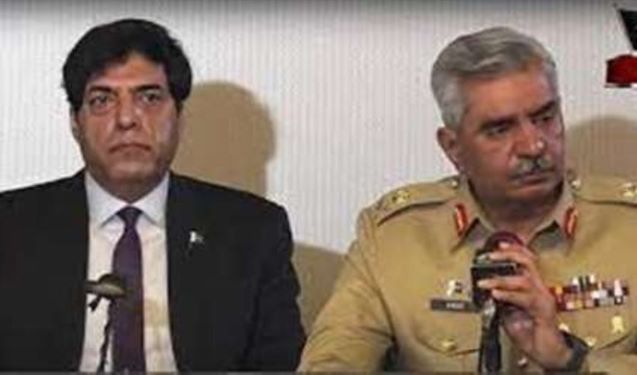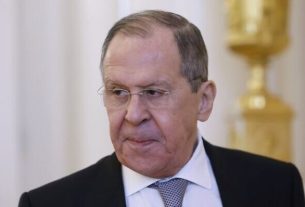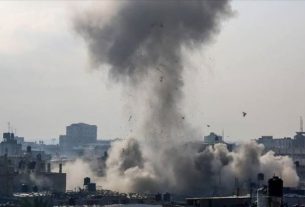On October 23, a known Pakistani journalist Arshad Sharif was shot dead by Kenyan police in Nairobi under suspicious circumstances. According to Kenyan police, Sharif’s killing was a case of “mistaken identity,” as the local government authorities were on the hunt for a similar vehicle which was involved in a “child abduction.” However, it is noteworthy that Sharif was a critic of Pakistan’s powerful military establishment and a backer of former Prime Minister Imran Khan. Two FIRs had been lodged against Sharif earlier in May this year under sedition charges for his alleged “anti-military remarks.” Furthermore, in late August, he was sacked from the ARY Network for allowing Pakistan Tehreek-i-Insaf (PTI) leader Shahbaz Gill to make controversial remarks against the army during a news programme. As a result, there are growing suspicions over possible involvement of the Pakistani ‘deep state’ behind Sharif’s killing.
Following several threats to his life and freedom from “unscrupulous elements” in Pakistan, Sharif was forced to flee to Dubai and later to Kenya. On July 12, Sharif had even written a letter to Pakistan’s president Arif Alvi, where he said: “As a law-abiding citizen of Pakistan, I seek justice and protection law to ensure my fundamental rights and fundamental rights of journalists and place information about grave threat to life and liberty to self and other journalists on the record.” The United States-based International Human Rights Foundation had claimed on twitter that Sharif was aware of the serious threats to his life in Pakistan.
Local journalists and activists do not believe the ‘official’ version and are hinting at the security establishment’s hand behind Sharif’s murder in Kenya. Moreover, this will not be the first case when a Pakistani journalist was harassed, tortured, intimidated, and killed under suspicious circumstances. Even seasoned journalists and activists like Saleem Shahzad, Hamid Mir and Raza Rumi, Gulalai Ismail, Manzoor Pashteen, etc, have been targeted in the past by local security agencies for their alleged “anti-military” stand. However, Sharif’s murder in a foreign country has exacerbated fears of local journalists, especially those critical of the military, who are now feeling insecure not just within Pakistan but in any part of the world.
The incident suggests that powerful institutions in Pakistan are desperately trying to silence selected media outlets and journalists. It is not a coincidence that Inter-Services Intelligence (ISI) chief Lt Gen Nadeem Ahmed Anjum joined Inter-Services Public Relations DG Lt Gen Babar Iftikhar on October 27 to speak about Sharif’s killing and other political matters in the country. This was the first time in Pakistan’s history that the ISI chief had directly addressed the media. Gen Anjum rejected all speculations regarding the army’s involvement in Sharif’s killing and the regime change allegations by Imran Khan. DG ISI also rebuffed Khan’s accusations against the United States’ hand behind the PTI government’s removal from power in April this year. Nevertheless, the press conference was seen as a weak attempt to safeguard Pakistan army, and Gen Qamar Javed Bajwa, from growing allegations of ‘interference’ in the country’s politics.
Arshad Sharif’s murder has possibly vindicated PTI’s accusations that the military establishment is favouring the ruling PDM government by physically targeting PTI leaders and pro-Imran Khan journalists in Pakistan (and outside). On July 5, a prominent pro-PTI journalist Imran Riaz Khan was detained for 17 treason charges. Imran Khan has condemned the “brutal murder” of Sharif in Kenya and said that it “highlighted an ongoing targeting of anyone who dares to criticise or question those holding power.” The incident will provide more political mileage to Khan’s ‘haqeeqi azadi’ long march to Islamabad and put the ruling coalition, along with security agencies, on tenterhooks.
Besides Khan’s long march, local journalists, international media organizations, and human rights activists are pressuring the army establishment and the civilian leadership to solve Sharif’s murder mystery. Whereas, on October 27, thousands of people attended Sharif’s funeral in Islamabad and chanted slogans of “revolution,” and sought justice for the slain journalist. Consequently, Pakistan government formed a two-member committee – consisting of senior officials from Pakistan’s Federal Investigating Agency (FIA) as well as a member from a civilian intelligence agency, excluding any involvement of ISI – to investigate the circumstances behind Sharif’s murder. Meanwhile, the opposition parties and the media community in Pakistan are not expecting a fair trial since Sharif was critical of both the current PDM government and the military establishment.
Pakistan has a history of media blackouts and suppression of dissenting voices. Paris-based media watchdog Reporters Without Borders (RSF) this year put Pakistan at 157 among 180 countries on its World Press Freedom Index list. Although Imran Khan calls himself a ‘victim’ of the state-sponsored targeting of pro-PTI media channels and journalists, the 2021 RSF report called Khan one of the “predators of press freedom” in a list of global leaders accused of suppressing dissenting voices. Daniel Bastard, the head of RSF’s Asia-Pacific Desk, has argued that despite the change in governments, harassment of journalists keeps on recurring as the powerful military intervenes behind the scenes to “bring Pakistan’s journalists to heel.”





